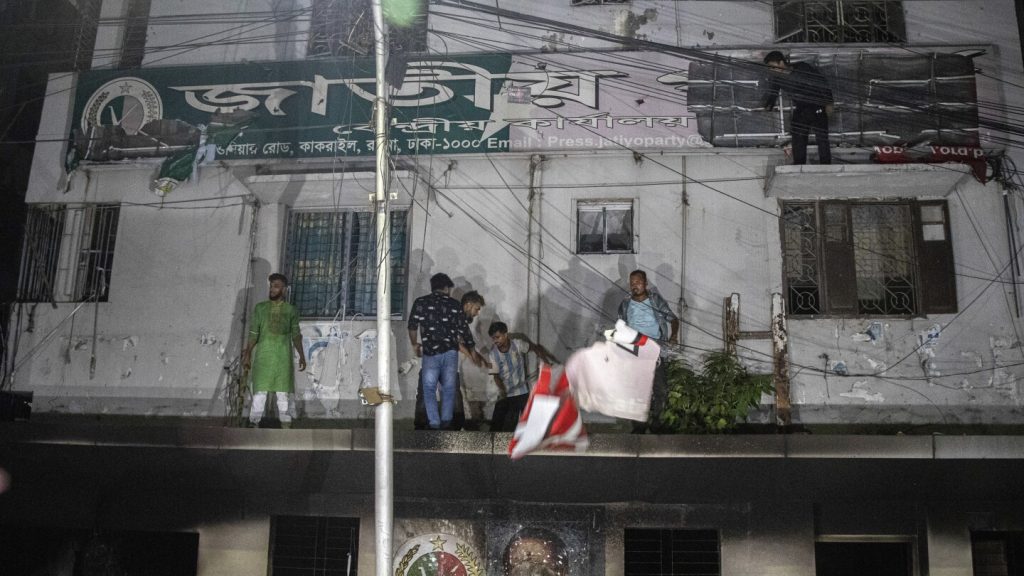The headquarters of Bangladesh’s Jatiya Party, a supporter of the country’s ousted leader Sheikh Hasina, was attacked by unknown assailants on Thursday night. Reports indicate that the attackers stormed the party offices in Dhaka and set the premises on fire, although it is unclear if anyone was injured in the incident. The extent of the damage is not yet known, and firefighters were called to the scene to contain the blaze. The Jatiya Party, founded by former military dictator H.M. Ershad in the 1980s, is the third-largest political party in Bangladesh.
During the attack, a prominent leader of the student protest movement that led to Hasina’s ouster in August condemned the Jatiya Party for its support of her government. Hasnat Abdullah, a member of the Anti-Discrimination Student Movement, referred to the party as a “national betrayer” in a Facebook post and called for its destruction. Abdullah also urged students to gather at Dhaka University and march toward the Jatiya Party headquarters. In response, Mujibul Haque Chunnu, the party’s secretary general, blamed the students for the attack and expressed concern over the situation being broadcast on social media.
Sheikh Hasina, who ruled Bangladesh for 15 years before fleeing to India in August, faces arrest warrants for her involvement in the violent events that unfolded during the student-led protests. The demonstrations escalated into a wide-scale anti-government movement, resulting in numerous casualties. Following her departure, Muhammad Yunus, a Bangladeshi Nobel laureate, assumed leadership of an interim government supported by the student group and the country’s military. Despite efforts to restore order, the administration has faced challenges in addressing the ongoing unrest and violence in the nation.
Critics of Hasina’s rule allege that the Jatiya Party collaborated with her government to maintain the appearance of democracy, as other major political parties refrained from participating in elections. The attack on the party’s headquarters highlights the deep divisions within Bangladeshi society and the political landscape, with tensions remaining high following the recent unrest. As the country grapples with the aftermath of the protests and the subsequent power vacuum created by Hasina’s departure, concerns about stability and the potential for further violence persist among the populace. Efforts to bridge the gaps between different factions and establish a path towards reconciliation and democratic governance will be crucial in the coming days.


